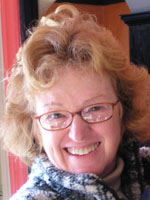
Kathleen C. Taylor
General Motors (retired)
Lasting Memories
My first GRC experience was the Catalysis Gordon Conference I attended as a young scientist in the early 1970s. I recall the many great names in the field that I had the opportunity to meet, the lively scientific debate, and of course the beauty of New Hampshire in the early summer. My lasting memories of those years are of people widely recognized for their scientific achievements and industrial applications and of friendships created that endured throughout my career.
I was excited to attend, especially because accep-tance to the conference was very competitive. Usually only two people from a given company would be selected to attend; the companies knew this and would only submit two names. I had joined the General Motors Research Laboratories in 1970, where I was involved in the early catalysis research related to the automotive catalytic converter. (Prior to that I had done my graduate work under Robert Burwell, Jr., at Northwestern University and my postdoctoral studies with Charles Kemball at the University of Edinburgh.)
Catalyst is now a household word, as the catalytic converter has since brought about remarkable reductions in automobile emissions. The development of the automotive catalytic converter exemplifies how the field of catalysis has continued to reinvent itself in response to new needs, opportunities, and discoveries, and the Catalysis Gordon Conference is where it happens.
I recall from early years of the Catalysis Conference a long list of outstanding scientists: my most vivid memories are of Robert Burwell, Michel Boudart, Paul Emmett, Herman Pines, Vladimir “Val” Haensel, R. Paul Eischens, and W. Keith Hall, who was famous for sustaining late-night scientific discussions. The Gordon Conferences had their summer headquarters at Colby-Sawyer College in New London, New Hampshire. The Catalysis Conference traditionally covered major and emerging research themes instead of focusing on a single area of the field. Catalytic science and applications were addressed in the search
for new understandings. Speakers were drawn from the broad community of scientists and engineers from academia, industry, government, and technological societies. Additional conference activities included swimming, sailing, walks in the White Mountains, tennis, and soccer matches between scientists from the United States and those from elsewhere in the world. Other long-standing and memorable traditions were the Thursday-evening lobster banquet, the song fest, midnight swims, and pizza feasts.
I chaired the Catalysis Gordon Conference in 1993. I had already served on the Selection and Scheduling Committee for several years and served as a board member from 1991 to 1996 and board chair in 1994. In these years the number of conferences in the United States was rapidly expanding, and so the board decided to start a series of conferences in Europe as well.
I first met Alex Cruickshank, the man who put it all together, in the early years of the Catalysis Conference at Colby-Sawyer. Alex was always forward-looking. The trustees made the decisions, but Alex always gave them good choices. He let the science happen on its own and recognized the needs of scientists to meet and share their work in the Gordon tradition. Alex’s dedication to the conferences was phenomenal, and his skill in working with the host schools was legendary. His ability to embrace the new, yet keep the unique core character of the Gordon Conferences intact, was very important to his success. My time serving on the board of trustees included the years just before Alex retired, and Alex remains a dear friend to this day.
Serving on the GRC board of trustees gave me an opportunity to work with an extremely talented group of scientists and to take part in the management of a small business. Andrew Kaldor introduced the board to excellent financial management practices, and many professional people also contributed positively by helping to guide us through the ups and downs of the organization. We also worked to formalize some processes, such as the orientation of new chairs, so that we were not reinvent-ing our work each year. These improvements continued as Carl Storm became the new director of GRC in 1993. Through new developments and transitions, GRC has continued to grow.